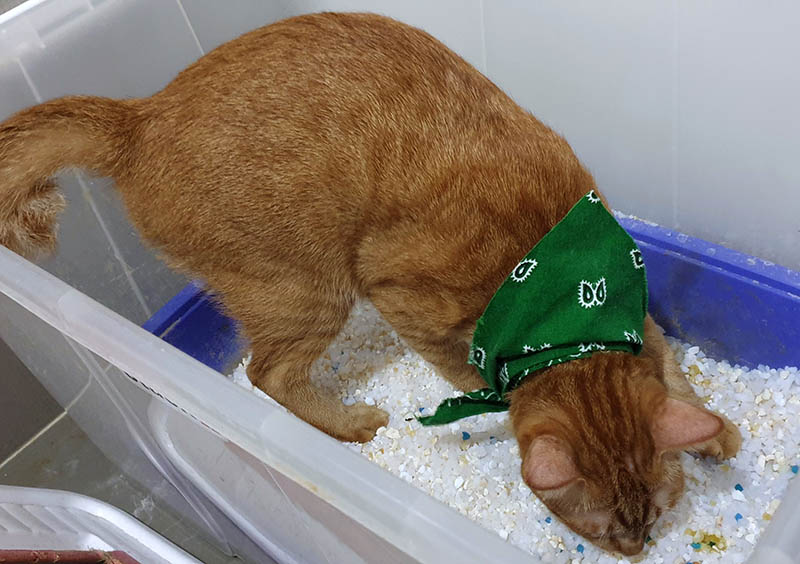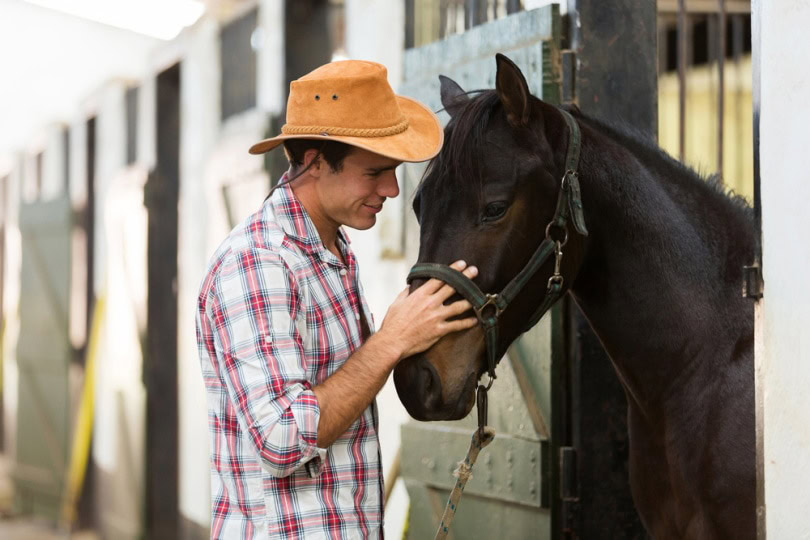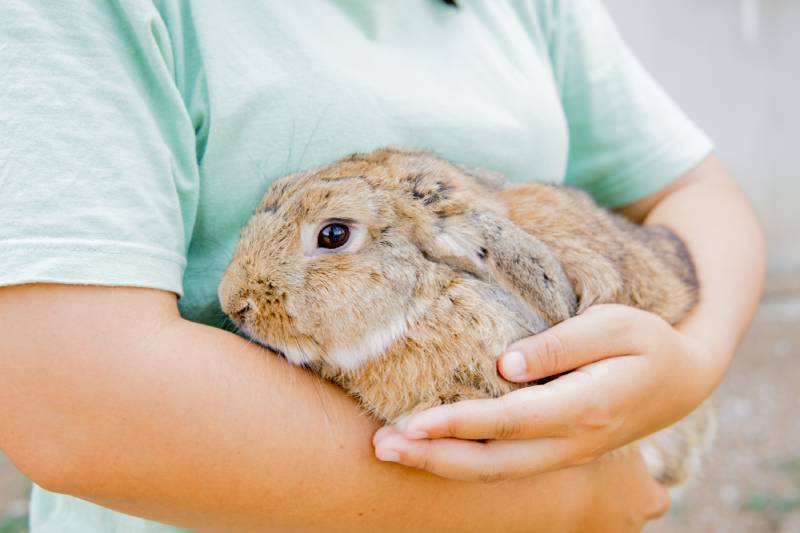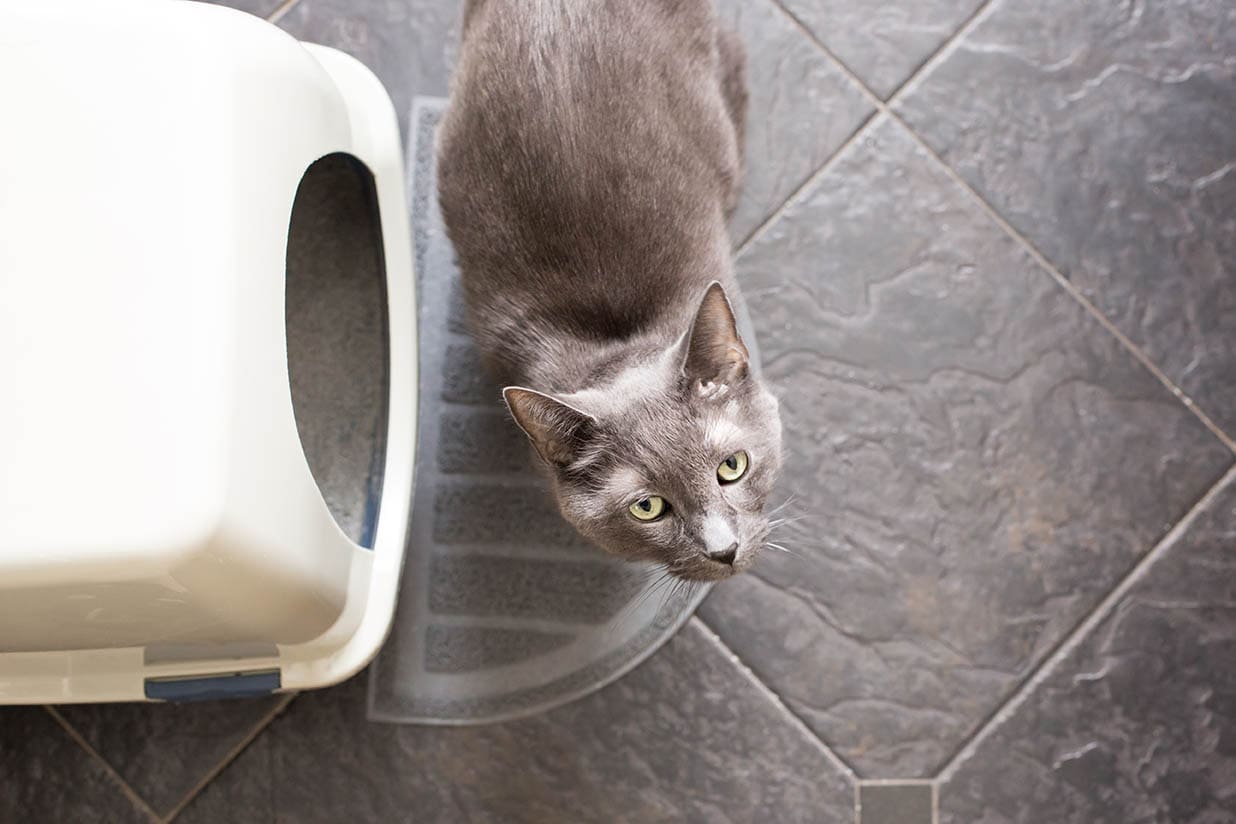VET APPROVED

The information is current and up-to-date in accordance with the latest veterinarian research.
Learn more »Click to Skip Ahead
As cat owners, we know our pets are capable of some really strange behaviors. They ask us to pet them, then bite us, make strange chattering noises at birds outside the window, and stare at us from across the room, but one behavior we can do without is eating litter. Cats who eat litter scare many an owner and if this is what’s happening in your home, keep reading while we look into possible health risks. We’ll also discuss why your cat might be eating litter and what you might be able to do to prevent it so you can be better informed.

The 5 Vet-Reviewed Reasons Cats Eat Litter
1. Some Cats May Like the Taste
One of the possible reasons some cats and kittens end up eating litter is that they like the taste. Kittens may also play with their litter and inadvertently end up eating some. While cats generally don’t want to eat clay, there might be additives in the litter that your cat enjoys. Many people use alternative litters that cats are more likely to eat, including corn, grass, wheat, coconut husk, and walnut shell litters. Some cats might even enjoy eating paper litter and may play with and eat paper around the house.
- What Can I Do About It?
If you think your cat might be eating the litter because they like the taste, the best thing to do is try a different brand, ideally a biodegradable one. If you are using an alternative to clay to prevent dust in your home, you can still try one of the other options. However, even though it may seem they are doing it just for fun, it’s important to understand the serious health implications eating litter can cause, such as a life-threatening gastrointestinal blockage, and seeking prompt veterinary help is crucial so underlying medical causes can be ruled out.
2. Pica
Pica is an eating disorder that affects many animals, including humans, dogs, and cats. It causes your pet to chew on and eat inedible items without nutritional value, including wood, plastic, metal, and sometimes litter. It can start from kitten age, and while some can grow out of it, others will continue to eat inedible items into adulthood, and it can be challenging to intervene in some cases. If you have a Siamese or Birman cat, they could be more likely to develop pica and compulsive wool-sucking, often due to a combination of factors such as early weaning, small litter size, and underlying medical issues.
There are many possible health conditions that could result in pica, some of which cause malabsorption and nutritional deficiencies, such as chronic gastrointestinal disease and intestinal parasites, neurological disorders, or conditions causing an abnormally big appetite, such as hyperthyroidism and diabetes.
- What Can I Do About It?
The first step is understanding the underlying cause of your cat’s pica with the help of your veterinarian. This way, your cat can receive the veterinary treatment they require to hopefully reduce this harmful behavior. Pica can be challenging to manage in some cases, and your cat may continue the behavior to some degree despite all efforts. Parents of these cats will need to be vigilant about keeping any items the cat might eat out of reach at all times. It can cost more than $1,000 to remove an item from the cat’s stomach or intestines, and this procedure is not risk-free, not to mention the serious long-term health effects this behavior may present.
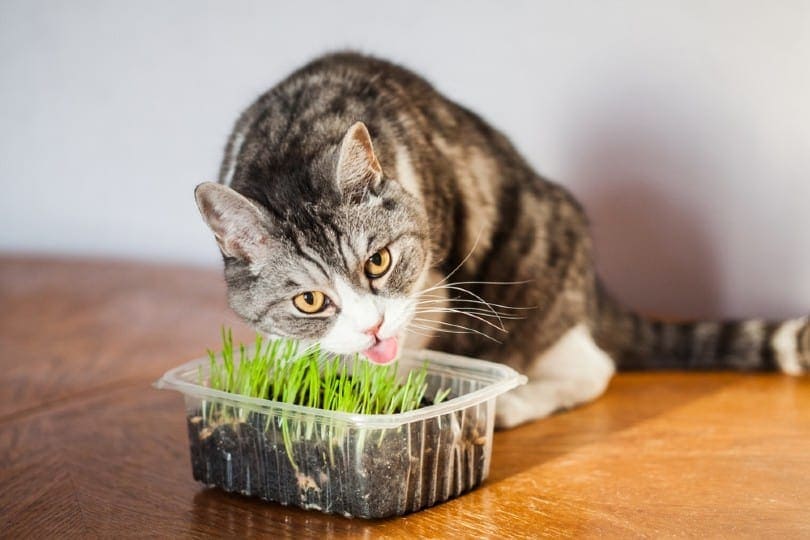
3. Other Health and Behavioral Problems
Unfortunately, other often serious health problems may also cause your pet to eat litter, without necessarily leading to them eating other inedible items. Neurological conditions can cause this to happen in some cases, and old age and cognitive decline may also be the culprits. The behavior in some cases becomes compulsive and may not be linked to an actual health disorder, with a genetic predisposition in certain breeds.
- What Can I Do About It?
Consult your veterinarian, who can rule out underlying health issues. A feline behaviorist may help with personalized approaches and tips on managing the condition long term, if the cause is behavioral. Besides medical and behavioural interventions, using a biodegradable cat litter that is safer to be ingested is another way to try and prevent health complications from eating cat litter.
4. Stress and Boredom
Another common reason for odd behavior like eating litter can be stress, frustration, and boredom. A sudden change in the routine or household dynamics, lack of sufficient physical exercise, and inadequate enrichment or mental stimulation can all lead to stress and undesirable behaviors. Cats suffering from anxiety or boredom may also show changes in their behavior, such as inappropriate toileting outside of the litter box, excessive meowing, destructive behaviors, increased or decreased appetite, sleeping more, and hiding.
- What Can I Do About It?
If you feel that your cat is suffering from boredom, stress, frustration, or anxiety, you’ll need to identify and remove the problem. Consult with your vet, make the household changes as gradual as possible, allowing your cat plenty of time to adjust, and use feline pheromones to provide them with reassurance. If you have recently acquired a new pet, you may need to separate the animals and reintroduce them slowly to lower stress levels so your cat will stop eating the litter. Increase the time you spend playing with your cat, engage them in mind-stimulating games and challenges, and enrich their environment using cat trees, perches, scratch posts, interactive toys, and other means to reduce their boredom and frustration.
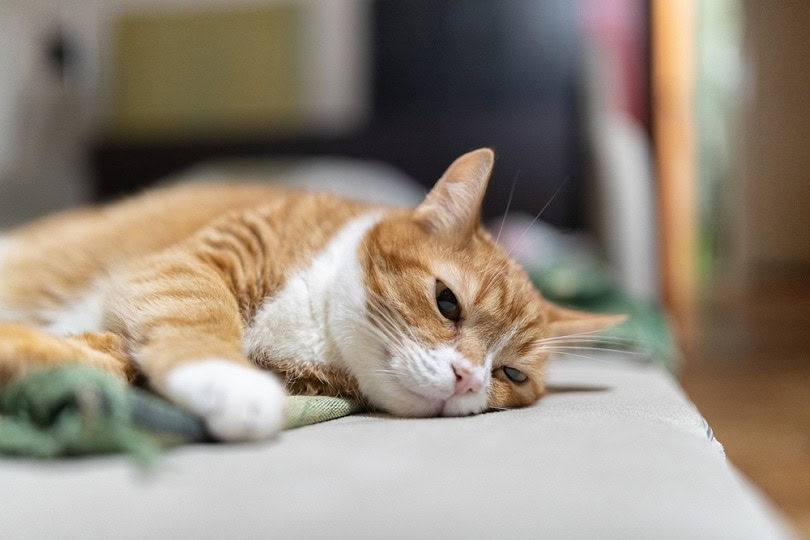
5. Coprophagia
Some cats will actually eat the feces from the litter box, while ingesting some litter in the process. This may be caused by curiosity in younger animals and kittens, as well as boredom, but there is a long list of potential health issues leading to coprophagia, often due to malabsorption and nutritional deficiencies.
- What Can I Do About It?
Speak to your veterinarian and get your cat examined as soon as possible. Getting down to the root cause of the behavior is crucial in being able to manage it long term and avoid harmful consequences of eating litter.

Is Eating Litter Bad for My Cat?
Most litter is non-toxic to cats, and they all eat a small amount of it as they groom themselves after using a litter box. However, eating a lot of it can be quite worrisome because clumping litter can clump in the stomach, blocking the stomach and intestines. Other litters might have fragrances or other chemicals to help them perform better that can be harmful to your cat if ingested in large quantities. Silicone-based litter can be especially harmful to your cat should they eat too much. Ingested litter can block up the stomach or intestines, preventing the food content from going through, leading to vomiting, inappetence, abdominal pain, distension or bloating, lethargy, and straining to defecate. This condition requires immediate veterinary care.

Final Thoughts
It’s crucial to speak to a vet as soon as possible if your cat is eating litter, as this may lead to serious health complications and a gastrointestinal blockage. There are many possible medical causes for this behavior, and they should be investigated in detail and ruled out.
Alongside necessary veterinary intervention, consider switching to a biodegradable brand for the time being. Grass and corn-based litter that do not clump may be safer if your cat tries to eat them.
We hope you have enjoyed reading this short guide, and that it has helped answer your questions.
Related Reads:
- Reasons Why Cats Roll Around in Litter Boxes (And How to Stop It)
- Why Do Cats Like to Chew on Plastic So Much? Likely Reasons
Featured Image Credit: RJ22, Shutterstock
